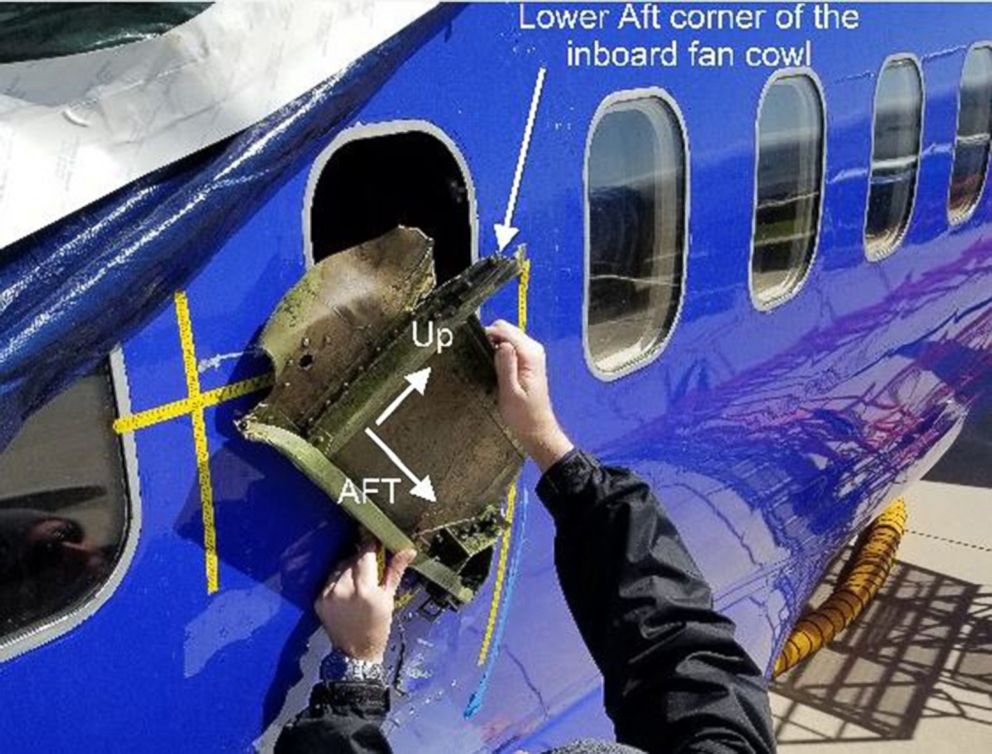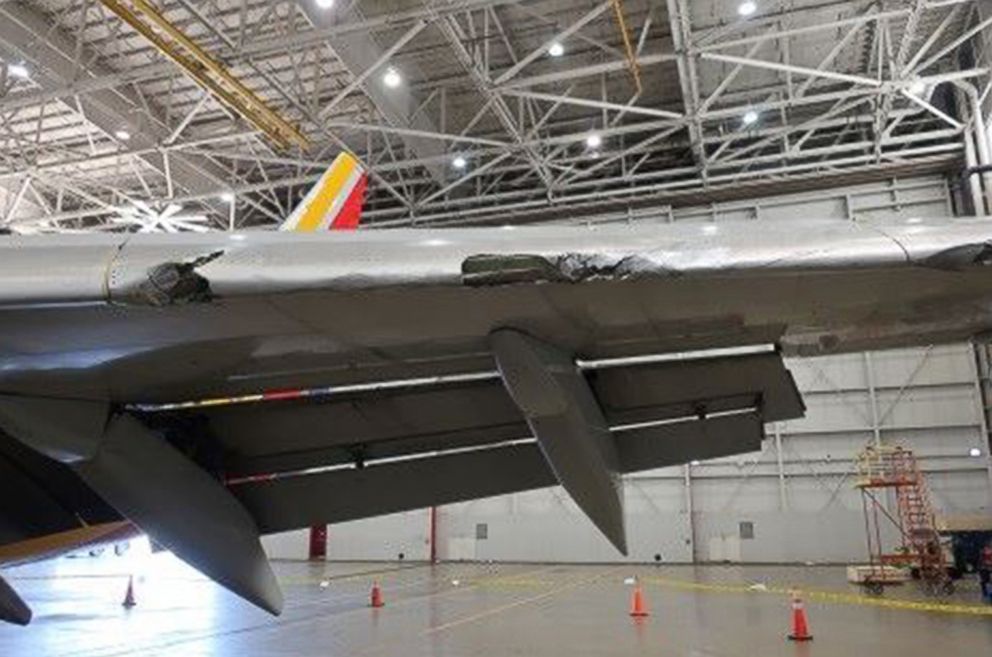Engine cowling, not fan blade, damaged window on fatal Southwest flight: NTSB
Inspectors found a gouge on the damaged fuselage, the NTSB said Thursday.
It was apparently a fragment of the engine cowling, not a fan blade, that struck the window of Southwest Flight 1380, resulting in depressurization of the aircraft and the death of passenger Jennifer Riordan two weeks ago, the NTSB said Thursday.
According to the agency's latest update, a fan blade, which showed cracks consistent with metal fatigue, apparently broke off at the root at 30,000 feet, sparking a chain of events that left the cowling, left wing, left horizontal stabilizer and fuselage with "significant damage."

Investigators found a "gouge impact mark" next to the row 14 window, where the cowling struck the metal.
When the window shattered, Riordan, a 43-year-old mother of two sitting in the window seat, was partially sucked out of the aircraft.
Passengers and crew pulled Riordan back inside and attempted to resuscitate her while the pilots executed an emergency landing at Philadelphia International.
In interviews with the NTSB, crewmembers said they heard a sudden loud noise and felt the aircraft yaw on impact. In the cockpit, the crew saw a "puff of smoke."

The captain, former Navy fighter pilot Tammie Jo Shults -- who has been lauded for her extraordinarily calm demeanor during the incident – told investigators she initially planned a long final approach, but decided to hasten things along when she learned of the passenger injuries.
"We have part of the aircraft missing," Shults told air traffic controllers that day. "It's not on fire, but part of it's missing."
"They say there's a hole and someone went out," she added.
With the engine violently shaking, the plane hit the tarmac at 190 miles per hour, 55 mph faster than a normal landing. Riordan was rushed to a hospital, where she was pronounced deceased.
The FAA has since ordered the inspection of more than 3,700 aircraft for defective fan blades.
ABC News' Jeffrey Cook contributed to this report.




